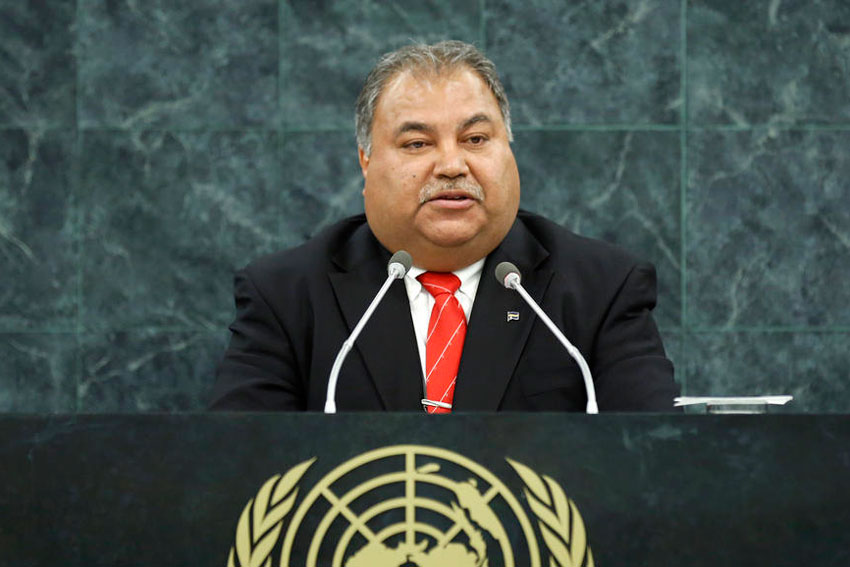Small island States at UN call for global statesmanship to mitigate climate change
“Never has the need been so dire for true statesmanship,” President Christopher Loeak of the Marshall Islands declared on the third day of the Assembly’s annual General Debate, warning that simply repeating well-worn negotiation slogans at next year’s climate summit will get the world nowhere.
“Global efforts on climate change are falling short – and low-lying island nations such as mine are already paying the earliest costs of what is fast becoming a global crisis. In every sense, the world must build for future risks, and too often, we are still setting course for current conditions,” he said.
“It is the seas that are rising – not the islands that are sinking. I will not concede my own land or my nation; but nor will I rest until my fellow world leaders have signed on to act, not just out of economic convenience, but of a common responsibility of all to strive for upward momentum.”
President Baron Waqa of Nauru called for the appointment of a UN Special Representative on Climate and Security to help expand the understanding of the security dimensions of climate change, reporting regularly to the General Assembly and Security Council on emerging climate-related security threats, as well as facilitating regional cooperation on cross-border issues.
He also called on UN Secretary-General Ban Ki-moon to lead a joint task force of all relevant organs and specialized agencies to immediately assess the capacity and resources of the UN system to respond to the anticipated security implications of climate change.
“We have heard in countless forums about the potentially destabilizing affects of climate change, yet we have only the vaguest idea of what an international response to these growing impacts would look like,” he said. “This needs to change. We must start preparing for the challenges that lie ahead.”
The two leaders are among scores of officials to speak at the annual General Assembly session at which heads of State and Government and other high-level officials will present their views and comments on issues of individual national and international relevance.


